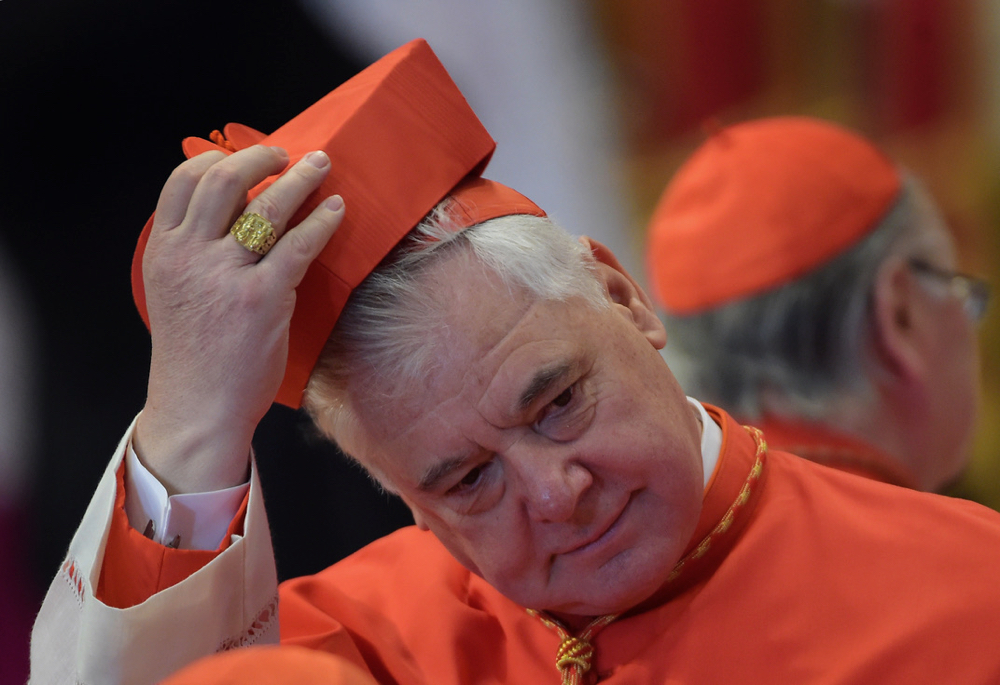Catholics, especially in the German-speaking world, were surprised to hear that Cardinal Gerhard Müller, the former Prefect of the Congregation for the Doctrine of the Faith, once strongly favoured the ordination of married men, not only in remote areas but also in large city parishes. More recently, on 11 October, Muller told the Tagespost that “not even the Pope can abolish priestly celibacy”.
In the final days of the Amazon Synod, quotations from a 1992 German text by Müller were circulated among the Synod participants in Rome. Writing in 1992, when he was professor of dogmatics at Munich University and had not yet become a bishop, Müller looked back to a trip he made to the Andes in Peru in 1988.
“On the Feast of the Assumption (in 1988), we experienced expressions of a deeply felt Indian religiosity which in our eyes could be understood as an expression of genuine faith and trust in God,” he wrote.
In his “Reflections on a Seminar”, held in 1988 on the occasion of the twentieth anniversary of the 1968 Medellin General Conference of the Latin American and Caribbean Bishops, (CELAM) which were published in the Catholic Academy for Youth Issues – Akademie für Jugendfragen – Müller then advocated ordaining viri probati, that is, proven married men.
“Celibate priests are necessary for the priesthood. It must, however, be possible to ordain religiously proven and theologically educated family fathers, not only in remote areas but also in huge city parishes, so that basic pastoral and liturgical practices can continue to be celebrated,” Müller emphasised. He explained: “A new concept of this kind would not contradict the Church’s tradition, as loyalty to tradition does not mean that the Church is only committed to past history but, on the contrary, far more to future history.”
He then warned: “If the Church insists on holding on to obligatory celibacy under all circumstances, it must state the reasons as to why both the spiritual meaning and the assets of celibacy are of such importance to the Church that it is even prepared to hazard a decisive deformation of its constitution on account of the lack of priests.”
These views on celibacy stand in strong contrast to views he expressed during the Amazon Synod. Asked what he thought of ordaining viri probati by Paolo Rodari in an interview in La Repubblica on 10 October, Müller replied: “Ordaining viri probati is wrong. The celibacy rule is not just any rule that can be changed at will. It has deep roots in the Sacrament of Holy Orders. The priest represents Christ and has a living spirituality that cannot be changed. ... No Pope and no majority of bishops can change dogma or Divine Law according to their taste”.
And on 11 October, Müller told Bavarian Radio that the discussions on the possible introduction of viri probati at the Synod looked like “European Catholics’ wishes in an Amazonian wrapping”.
“Celibacy as the normal priestly lifestyle in the Latin-rite Church cannot be called into question,” he underlined.
Meanwhile in a 24 October interview with Raymond Arroyo for EWTN Müller issued a strong statement against the erection of carvings of a pregnant woman in a Roman church for the Amazon Synod. He stated that “to bring the idols into the Church was a grave sin, a crime against the divine law”.
He made the comments after Arroyo mentioned the fact that people removed the controversial statues from the Church of Santa Maria del Traspontina and then threw them into the Tiber.
“The great mistake was to bring the idols into the Church,” replied the cardinal, “not to put them out, because according to the Law of God Himself – the First Commandment – idolatry is a grave sin and not to mix them with the Christian liturgy.”
“To put it out,” Müller continued, “to throw it out, can be against human law, but to bring the idols into the Church was a grave sin, a crime against the Divine Law. That is a deep difference.”



 Loading ...
Loading ...